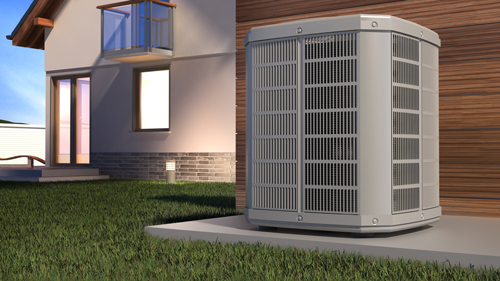Right now the leaves are just turning color, but make no mistake — winter is on the way. If you're dreading your annual oil purchase, a heat pump might help warm your house without setting fire to your budget.
A heat pump takes warmth from one area and moves it to another. For home heating, if you grew up with a heat pump that stopped working in extreme cold, you might be in for a pleasant surprise. Today's pumps can stand up to New England winter, may save you money over oil-based or traditional baseboard heating, and depending on your power provider they can also be a more environmentally friendly way to stay warm.

How does a heat pump work?
Your refrigerator is actually an example of a heat pump, pushing warm air out from inside the fridge. Like the fridge, home-heating pumps run on electricity.
There are three kinds of heat pumps: air-to-air, ground-to-air, and water-to-air.
Air-to-air is the most common type. These units take warmth from the air outside your house (even when it's cold outside) and move it inside. They are also called mini-splits, and they work much like an air-conditioning unit, but without requiring ducts.
A typical mini-split heat pump is usually positioned on an interior wall, connected by a small pipe to an outside unit. A good modern pump of this type can circulate warm air in a large room and beyond, potentially cutting your heating bill in the winter.
And here's a huge bonus: in the summer, the unit can work in reverse, pushing hot air out of the house to reduce cooling costs as well.
Why is a heat pump environmentally friendly?
Since it runs on electricity, a heat pump's environmental impact depends on the power provider you've chosen. Some New England electric utilities rely on solar or wind to generate power. Heat pumps driven by this type of power can contribute to net-zero or carbon neutral homes.
And they simply use less power than older alternatives. According to the government website energy.gov, "today's heat pump can reduce your electricity use for heating by approximately 50% compared to electric resistance heating such as furnaces and baseboard heaters." Unlike water boilers or basement-base heating units, heat pumps don't use a chimney or flue and don't waste money by leaking heat into unused space in the home.
These heating-and-cooling units work best in conjunction with good insulation, including double-pane windows. Older homes may need a bit of work to get all the benefit, but lower energy bills can help offset remodeling costs, in addition to making your home more comfortable and increasing resale value.
